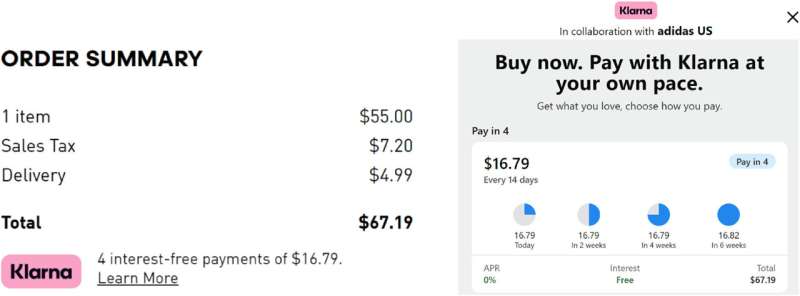Edit Content
Trending






Research shows that eating a healthy breakfast is associated with a better-quality diet overall. Studies have linked breakfast with better body weight control, nutrient intake, and cognitive function. However, not all breakfast foods are created equal.
Breakfast is an opportunity to eat foods rich in vitamins, minerals, and macronutrients (nutrients your body needs in large quantities) that provide sustained energy. While all foods can fit into a balanced diet, unhealthy breakfast foods are high in saturated fats and sodium but low in fiber and lean protein.
Sugary cereal is often marketed as a quick, convenient, and delicious breakfast option. However, its high sugar content and lack of nutrients make it a generally unhealthy choice. Most sugary cereals are made with added sugars and refined grains that are low in fiber, which can cause rapid blood sugar spikes.
The latest Dietary Guidelines for Americans recommend that less than 10% of your daily calories come from added sugars. Therefore, a 2,000-calorie diet should include no more than 200 calories from added sugar. Depending on the brand, one bowl of sugary cereal may eat up more than half of your recommended limit.
These breakfast cereals also often lack protein and healthy fats, leaving you hungry soon after breakfast is over.
Processed meats—such as bacon, ham, and sausage—are breakfast staples enjoyed alone or in recipes like sandwiches, bowls, and casseroles. However, research suggests processed meats may not be a healthy way to nourish your morning, as they are high in saturated fats, cholesterol, and sodium.
Research has shown that consuming a lot of red and processed meats may increase your risk of type 2 diabetes, heart disease, and certain cancers. Some studies suggest replacing processed meat with plant-based protein to help lower your cholesterol and reduce the risk of cardiovascular disease.
Pastries, such as croissants, muffins, and donuts, are some of the unhealthiest breakfast choices. They’re typically made with refined flour, added sugar, and unhealthy fats, creating a calorie-dense, sweet food with little nutritional value.
Pastries are typically dense in carbohydrates and lack essential nutrients like protein, fiber, and vitamins. Eating foods high in carbohydrates can cause a blood sugar spike, leaving you feeling sluggish and hungry soon after. Fluctuating blood sugar levels can contribute to weight gain and chronic inflammation.
Traditional oatmeal is full of fiber and plant-based protein. These nutrients support a healthy gut microbiome and lower cholesterol levels while helping you feel fuller longer. It’s also rich in vitamins and minerals. Unfortunately, flavored instant oatmeal does not offer the same health benefits.
Instant oatmeal packets are a convenient way to enjoy hot cereal in the morning, but their ingredients may lessen their nutritional value. Flavored oatmeal packets are often high in sugar and artificial additives, which can cause a blood sugar spike after consumption.
Fried hash browns are high in unhealthy fats, calories, and sodium. One cup of fried hash browns contains 315 calories, 13 grams of fat, 44 grams of carbohydrates, and only 4 grams of protein.
Potatoes are naturally a good source of potassium and other nutrients, but frying them in oil may reduce their nutritional value. Fried hash browns are typically high in sodium, and research indicates that a high-sodium diet is a major risk factor for cardiovascular disease.
Traditional pancakes, made with refined flour and served with butter and sugary syrups, can be an unhealthy breakfast choice. Pancakes are typically low in fiber, which causes your body to digest carbohydrates quickly. This rapidly increases your blood sugar levels, which then drop as your body releases insulin to combat the excess glucose in your system. This rollercoaster effect can adversely impact your metabolic health and cause you to feel hungry between meals.
If pancakes are your favorite breakfast food, consider making whole-wheat pancakes. Whole-wheat flour contains slightly more fiber than white flour, which supports gut health and helps you feel full between meals.
Cinnamon rolls are a classic breakfast dish. While they may be okay to enjoy occasionally, they’re not ideal for regular, routine consumption. Cinnamon rolls are made with refined flour and added sugar, offering few benefits outside their sweet flavor.
Frequent consumption of cinnamon rolls may contribute to poor blood sugar control and unintentional weight gain. Their high sugar content may also cause a rapid increase in your blood glucose levels, followed closely by a sugar crash characterized by fatigue, increased food cravings, and irritability.
Flavored coffee creamers often contain added sugars, which may cause rapid changes in your blood sugar levels.
Coffee creamers are also full of unhealthy fats, and their serving sizes can be unrealistic. The standard serving size is 15 milliliters (1 tablespoon), but many people do not measure their creamers and consume more calories than intended. For example, 1 tablespoon of vanilla coffee creamer contains 35 calories and 5 grams of sugar.
Without measuring, it would be easy to add multiple servings and consume almost 100 calories and 15 grams of sugar. Non-dairy coffee creamers are also typically made with partially hydrogenated oil, a significant source of trans fats that may increase the risk of cardiovascular disease, type 2 diabetes, and cancer.
Frozen waffles are convenient, but their lack of nutritional value may overshadow their easy preparation. Frozen waffles are typically made from refined white flour and often lack fiber, vitamins, and minerals.
Many varieties also contain added sugars and unhealthy fats, which may ultimately contribute to weight gain, heart disease, and insulin resistance. Topping them with syrup and butter increases their sugar content and calorie count.
While simple and convenient to prepare, white toast is made with refined flour and contains very little fiber. One slice of white bread provides just 1.5 grams of fiber.
Only about 5% of people in the United States meet their daily fiber needs, and white toast for breakfast is not a worthwhile solution for most. Research has shown that swapping white bread for a high-fiber alternative nourishes a healthy gut microbiome, improving gastrointestinal and metabolic health.
White toast is also not very filling. It is low in protein and healthy fats, leaving you hungry soon after eating it.
Like white bread, bagels are usually made with refined flour that is low in fiber. After eating them, you may experience a rapid spike in your blood sugar levels, followed by an energy crash soon after. While adding cream cheese may help with blood glucose levels, the spread is high in fat and calories. Bagels and cream cheese also lack various vitamins and minerals, offering little nutritional value outside of calories.
One plain bagel contains almost 300 calories, 57 grams of carbohydrates, and just 10 grams of protein. The average healthy adult needs more protein in the morning, meaning you’d have to consume more than just a bagel with cream cheese at breakfast.
Frozen breakfast burritos are usually high in sodium and unhealthy fats, offering little nutritional value to start your day. Many varieties include processed meats like ham or sausage, which increases cholesterol and saturated fat content. Regularly consuming frozen breakfast burritos may increase your risk of heart disease and hypertension (high blood pressure).
Although they may be convenient, frozen burritos lack nutrition. They can be very calorie-dense and don’t often provide sufficient protein and fiber. So, while you may have consumed adequate calories at breakfast, you will likely be hungry soon after.
Breakfast bars are easy to eat on the go, but they’re typically loaded with unhealthy fats, sugar, or artificial sweeteners. Many options are low in fiber and protein, making them a less-than-ideal choice when searching for a healthy breakfast.
In addition to their sweeteners, breakfast bars tend to include low-quality ingredients that offer little nutritional benefit. Consuming them in place of a well-balanced breakfast may lead to weight gain, poor digestive health, and an increased risk of chronic disease.
Flavored yogurts typically lack essential nutrients and are packed with added sugars. Compared to Greek yogurt, flavored regular yogurt is lower in protein and higher in added sugars. Flavored yogurt may cause a blood sugar spike after eating it, increasing cravings and sluggish energy levels.
Many yogurt varieties also contain artificial flavors, colors, and preservatives. If limiting artificial ingredients is a priority in your lifestyle, consider swapping flavored yogurt for plain or Greek yogurt with fresh fruit for sweetness.
Fruit juice can be an excellent source of vitamins and minerals, but many commercially available brands are packed with added sugars and offer little nutritional value. Regularly drinking juice instead of water will increase your overall calorie intake, potentially contributing to weight gain and tooth decay. Their lack of fiber also doesn’t help you feel full and satisfied between meals.
To meet your recommended daily fruit servings, consider eating fresh fruit instead of drinking juice. Whole fruit provides several essential vitamins and minerals without the added sugars often found in commercially available fruit juices.
Breakfast sandwiches, especially from fast-food restaurants, can be high in saturated fats, refined sugar, and sodium. Many brands of breakfast sandwiches contain processed meat and a bun or bread high in carbohydrates. Processed meats have been linked to long-term health concerns, and the bread products of breakfast sandwiches often lack fiber and other crucial nutrients.
While they may be convenient to heat and take with you or grab from a restaurant on the go, breakfast sandwiches don’t offer much in the way of a balanced meal.
There’s no one way to eat healthy at breakfast, but some foods may serve you better than others. Here are 10 nutrient-dense foods that can add a nutrition boost to your morning meal:
Some of the unhealthiest breakfast foods are the easiest to find, but their convenience doesn’t outweigh their lack of health benefits. Choices like sugary breakfast cereals, flavored yogurt, and fried hash browns lack nutrients that can support your health and wellness.
Some of the better breakfast options, like protein smoothies, quinoa bowls, and eggs, can provide you with nutrients involved in energy production, muscle tissue repair, and immune function.
A registered dietitian or nutritionist can help you tailor your breakfast menu to fit your dietary preferences, nutrient needs, and health goals.
©2024. Livebuzznews. All Rights Reserved.